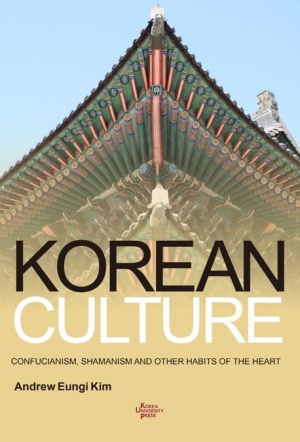Prof. Andrew Eungi Kim published the new book. This book is published by Korea University Press(2022). Please look at the contents below.

1. Introduction
Who are Koreans? What is their character? What are the ideals and values of Koreans which make them behave in certain ways? What are their dominant concerns and interests, their worldviews that best express their underlying beliefs and attitudes? In answering these questions, the book argues that the most important aspects of their thought and behavioral patterns find their roots in shamanism and Confucianism. The book first describes the nature of shamanism and illustrates how the folk religion has shaped Koreans’ this-worldly orientation and their strong belief in fate and fortune-telling, among others. The book then explores how Confucian values have engendered a strong emphasis on the family-replete with filial piety and ancestor worship-collectivism, patriarchy, and emphasis on education. The book also discusses certain values which characterize Koreans’ mindset in interpersonal relations, namely chemyeon (“social face”), nunchi (“sizing up the situation”), gibun (priority of group’s mood over one’s own), and jeong (affection). Lastly, the book examines the so-called “emerging values,” beliefs or attitudes which have emerged in recent years as being important, including ethnic nationalism, leisure, fitness, youth, romantic love, concern for the environment, and ppalli ppalli (“hurry up, hurry up”). The book combines historical, religious, comparative, and sociological insights as well as psychological and anthropological findings in providing a detailed treatment of the complexity and uniqueness of Korean culture and, to some extent, society.
2. Link
3. Professor’s Profile